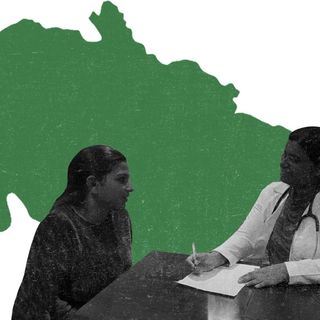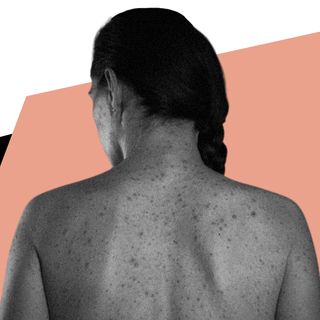People experiencing any mental health disorder, such as anxiety or anorexia,interpret bodily signals like hunger, cold, or itchiness in a different way in comparison to their healthier counterparts, according to a new study. The findings suggest the importance of looking at the biological perception of body sensations — to addressandtreat mental health disorders.
Published in the American Journal of Psychiatry, the study analyzed brain-imaging data from 626 individuals living with a wide range of mental health disorders, including anxiety, major depression, bipolar disorder, schizophrenia, and eating and panic disorders. Theresearchers compared it to the data collected on the brain functions of 610 healthy individuals.
They found that “interoception” — or the perception of sensations from inside the body like thirst and satiety, and even the sensation of breathing, or of feeling one’s own heartbeat — differed between individuals with mental health disorders and those belonging to the healthier set.
“Interoception is something we are all doing constantly, although we might not be aware of it,” Camilla Nord, a neuroscientist at Cambridge University’s Medical Research Council, who led the study, said in a press release. Explaining how it works, she added that “most of us are able to interpret the signals of low blood sugar, such as tiredness or irritability, and know to eat something. However, there are differences in how our brains interpret these signals.”
These “differences” can manifest in the form of “feeling uncomfortably full” in people living with eating disorders, or similarly, the feeling of one not “hav[ing] enough air” in panic disorders, the researchers explained.
Related on The Swaddle:
World’s First Biomarker Test for Depression, Bipolar Disorder Is in the Works
The study identified the region in our brains that is responsible for this: the dorsal mid-insula in ourcerebral cortex is determines how we perceive interoceptive signals, the researchers noted.
When the activation of the brain region in people suffering from mental health disorders was compared to that of the individuals in the control group — the set of people used as the ‘standard’ in scientific experiments like this — researchers found disruptions in the activation of the dorsal mid-insula in response to different interoceptive signals.
At present, however, the dorsal mid-insula is neither targeted by psychiatric medication, nor by psychological therapy that are commonly used to treat different mental health disorders. So, Nord and her team are trying to investigate whether the disrupted activation of the dorsal mid-insula in people suffering from mental health disorders can be “studied as a new target for future therapeutics.”
This could, potentially, open up new ways to treat mental health disorders. The researchers are also trying to understand which treatments, if any, could address the alterations in brain activation.
“It’s surprising that in spite of the diversity of psychological symptoms, there appears to be a common factor in how physical signals are processed differently by the brain in mental health disorders,” Nord noted, adding that it also “shows how intertwined physical and mental health are.”




